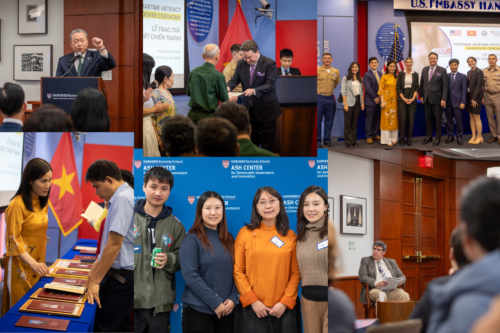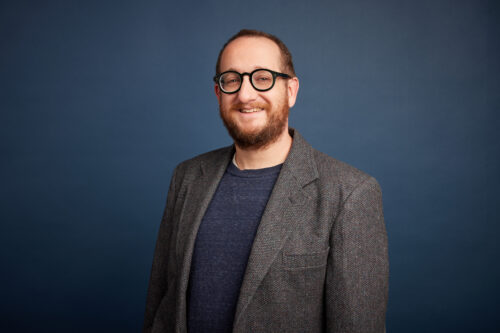On the outskirts of Ho Chi Minh City in Vietnam, in the Saigon High-Tech Park, a massive experiment in higher education is about to take shape. Ground will soon be broken for the campus of Fulbright University Vietnam, an ambitious undertaking to build the country’s first independent, not-for-profit university.
The seeds for this new university were planted nearly two decades ago when the Ash Center’s Tommy Vallely helped establish the Fulbright Economics and Teaching Program (FETP), a partnership between the University of Economics, Ho Chi Minh City and Harvard Kennedy School. FETP has been a leading intellectual force in public policy education in Vietnam. Building on this long track record of academic achievement, Vallely is now working to make a wider mark on the education sector in Vietnam.
“Vietnam is a rapidly growing economy, but its growth has not been on par with its neighbor, China,” said Vallely in a recent interview. “Part of that is due to its human capital. It hasn’t built up a university system that can produce the skills the country needs to sustain a high enough growth rate.” The World Bank in a 2014 report ranked the country in the bottom half of rankings of ASEAN countries’ workforce development. “There simply does not yet exist a large enough pool of highly trained workers in Vietnam who are capable of helping the country meet its economic growth targets,” added Vallely.
In this educational void, Vallely saw an opportunity to elevate FETP and ensure its sustainability into the future by working to transform the school into a full-fledged university. “What we have built with FETP is the envy of universities across the US who are interested in expanding their work in Vietnam,” said Vallely. “FETP has an unparalleled track record in Vietnam and was the most logical building block for FUV.”
Of course building a university from scratch is no easy undertaking. “We expect FUV to grow organically over a number of years after its founding,” said Ben Wilkinson, the executive director of the Trust for University Innovation in Vietnam (TUIV). Prior to assuming his leadership position with TUIV, Wilkinson served as the director of the HKS Vietnam Program and worked to administer the Fulbright School for Harvard. Wilkinson’s new organization, TUIV, is charged with helping to midwife the birth of FUV as an independent institute of higher education. Vallely serves as chair of TUIV’s board.
FETP will become the cornerstone of the new university, but represents only one part of Vallely and Wilkinson’s ambitions for FUV. “FETP has shaped a generation of Vietnamese policymakers,” said Wilkinson, “and we expect that as core component of FUV, it will continue to do so.” The university also intends to build an undergraduate college as well as an engineering school to meet the country’s persistent desire for highly qualified graduates in the STEM fields.
Vallely and Wilkinson have made tremendous strides in building political and financial support for FUV. In July, Le Thanh Hai, the Secretary of the Ho Chi Minh City Party Committee, formally provided an investment license for the university following the approval in principle by the prime minister in June. The license is a critical milestone in the creation of FUV, and allows TUIV to begin planning and designing the new university in earnest.
FUV also has an important champion in Secretary of State John Kerry. On a trip to Hanoi this summer, Kerry, along with US Ambassador to Vietnam Ted Osius, publicly hailed the creation of FUV. “Fulbright University will be an incredible asset to Vietnam, because with academic freedom and with the energy and association with Harvard and all of the things that will come from it, they’lltake its education levels to an even higher level,” Secretary Kerry said in remarks to a group of FETP students.
TUIV has also worked to build support for the university on Capitol Hill and managed to break the congressional logjam by securing nearly $17 million from Congress for the university early this year. That funding, in addition to a separate grant of $2.5 million awarded to the Ash Center by the State Department to help transition the operations of FETP to FUV, will allow the university to open its doors to students next year.
The Vietnamese government is matching this commitment with its own in-kind contribution. In the Saigon High-Tech Park, the Vietnamese government has provided FUV with 37 acres for its new campus, nestled next to Intel’s Vietnam headquarters and a slew of other multinational corporations on a rent-free basis. For Vallely, the opportunity to break ground on the university is the perfect culmination of a career devoted to building educational links between the US and Vietnam. “There is no doubt in my mind that FUV will bring our two countries closer together and do much to help Vietnam prosper in the 21st century,” Vallely added.






